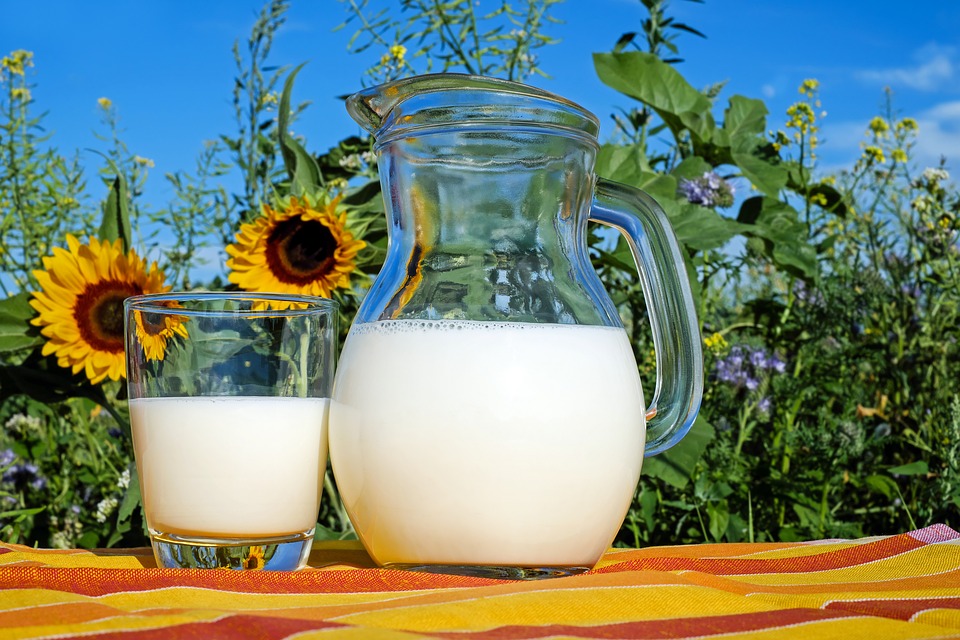
The dairy industry is currently facing great challenges, due to strong inflationary pressures, increases in energy prices and prices of irreplaceable raw materials leading to a significant increase in production costs and, consequently, shelf prices.
This emerges from an ICAP CRIF study of the dairy industry, according to which, in 2022, the domestic market of dairy products is estimated to record positive rates of change in most product categories.
Downturn
The domestic consumption of fresh pasteurized milk showed a downward trend in the period 2020-2021, after two years of positive changes. However, the domestic market of highly pasteurized, long-lasting and condensed milk showed positive rates of change in 2020, with this trend continuing in 2021. This is attributed to the changing consumer preferences who have turned to dairy products with a longer shelf life.
The yogurt market
The domestic yogurt market showed an average annual increase rate of 5%, in the period 2016-2018. However, in 2019-2021, it is estimated that it is recording a cumulative decrease of approximately 6%. An important development is the significant increase in yogurt exports, which accounts for 76% -78% of the total volume of dairy exports in the two years 2020-2021, which makes it the industry’s main export. The domestic market for both butter and cream has been fluctuating in recent years. Specifically, in 2021 the consumption of butter rose, after the significant reduction of 2020 and is covered almost entirely by imports, reaching 92% of Greek sales on average in the last decade (2012- 2021).
The market for cream has shown similar patterns, showing a decrease of 3% in 2020, while in 2021 it rose again. In general, the return to normal consumption rates – to some extent – in 2021, largely offset the losses of the previous year, as a significant part of the consumption of these products is absorbed by sectors affected by the health crisis (HORECA).
The effects of the pandemic
The pandemic was the reason for the downturn of certain categories of dairy products in the period 2020-2021, as measures taken by the State to limit the spread of the disease reduced the activities of many companies in the sector. However, the significant increase in household consumption and, consequently, the increase in sales, offset the overall losses.
However, the nature of dairy products has shown “resistance” to the pandemic. As a result, the pandemic slowdown had a mild impact on most product categories, while, according to market sources, by 2021 it had already entered a recovery trajectory. Of the total estimated per capita consumption of dairy products in 2021, about 33% is covered by the consumption of fresh pasteurized milk and beverages, 27% by highly pasteurized milk, while a percentage of 10% by yoghurt.
High degree of concentration
The degree of concentration in each category of dairy products is high with the largest dairies gaining significant market shares. In the total market of fresh (white) pasteurized milk, eight companies covered about 70% of total sales in 2020, while in the total market of highly pasteurized milk, only three companies are estimated to have covered the same percentage (70%). The presence of private label products in the whole range of dairy products is also remarkable. Their share in the retail market has been increasing in recent years. The domestic dairy product market is expected to grow in the coming years.
As part of the iICAP study, a financial analysis of the industry was performed based on selected indicators and a grouped five-year balance sheet was prepared based on a sample of 21 companies. The analysis of the grouped balance sheet of these representative dairy companies, for which data are available for the period 2016-2020, shows the following: The total assets of the sampled companies showed a cumulative increase of 7.3% in the period considered (2016-2020) despite the continuous annual fluctuations. Equity amounted to 532.45 million euros in 2020, showing a cumulative increase of 5%. Medium-term liabilities and forecasts more than doubled during the five years under review (2016-2020), while the short-term liabilities of companies in the sector followed a downward trend, recording a cumulative decrease of 32.3% over the same period. The total sales of the sampled companies showed a continuous upward trend, which increased by 12.4% in 2020 compared to 2016. A significant cumulative increase (82.0%) was presented by the EBITDA of the 21 companies (2020/2016). In the five years under review, the overall final (net) business result was consistently profitable, and in 2020 it peaked. It is noted that out of the 21 companies in the sample, 17 were profitable in 2020, compared to 16 profitable companies in 2016.
Latest News

Easter Sales Performance and the Source of €4–5 Million in Losses
Easter retail sales were relatively weak this year, with the only "real winners" being the livestock farmers who had lambs to sell.

Hotel Foreclosures Continue to Plague Greece’s Islands
A surge in hotel foreclosures across Greece’s islands threatens small tourism businesses, despite booming visitor numbers and record-breaking travel in 2024.

Athens Launches Task Force to Safeguard Historic City Center
The new municipal unit will ensure compliance to zoning laws, curb noise, and address tourist rental issues starting from the Plaka district.

WTTC: Travel & Tourism to Create 4.5M New Jobs in EU by 2035
This year, international visitor spending is set to reach 573 billion euros, up by more than 11% year-on-year

IMF: US Tariffs Shake Global Economy, Outlook Downbeat
IMF slashes global growth forecast to 2.8% as U.S. tariffs create uncertainty and ‘negative supply shock

First Step Towards New Audiovisual Industry Hub in Drama
The project is set to contribute to the further development of Greece’s film industry and establish Drama as an audiovisual hub in the region

Airbnb Greece – Initial CoS Ruling Deems Tax Circular Unlawful
The case reached the Council of State following annulment applications filed by the Panhellenic Federation of Property Owners (POMIDA)

Mitsotakis Unveils €1 Billion Plan for Housing, Pensioners, Public investments
Greek Prime Minister Kyriakos Mitsotakis has announced a new set of economic support measures, worth 1 billion euros, aiming to provide financial relief to citizens.

Alter Ego Ventures Invests in Pioneering Gaming Company ‘Couch Heroes’
Alter Ego Ventures' participation in the share capital of Couch Heroes marks yet another investment by the Alter Ego Media Group in innovative companies with a focus on technology.

Corruption Still Plagues Greece’s Driving Tests
While traffic accidents continue to claim lives on Greek roads daily, irregularities and under-the-table dealings in the training and testing of new drivers remain disturbingly widespread













![Accor: Η βιωσιμότητα «κλειδί» για την ανάπτυξη και ανθεκτικότητα του ελληνικού τουρισμού [έρευνα]](https://www.ot.gr/wp-content/uploads/2025/04/thumbnail-90x90.jpg)
























![Accor: Η βιωσιμότητα «κλειδί» για την ανάπτυξη και ανθεκτικότητα του ελληνικού τουρισμού [έρευνα]](https://www.ot.gr/wp-content/uploads/2025/04/thumbnail-600x400.jpg)


 Αριθμός Πιστοποίησης
Αριθμός Πιστοποίησης